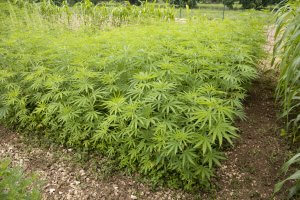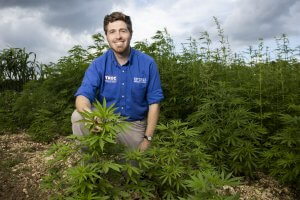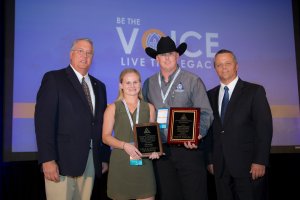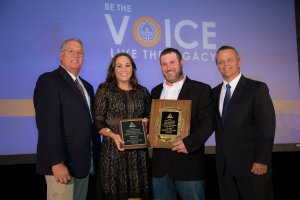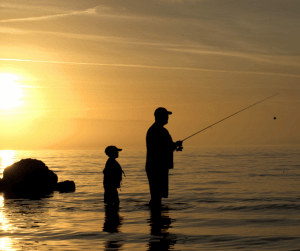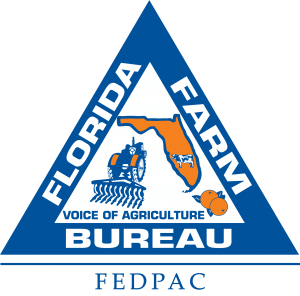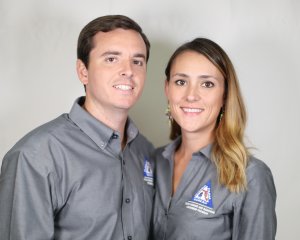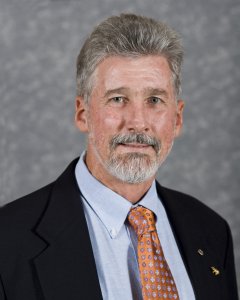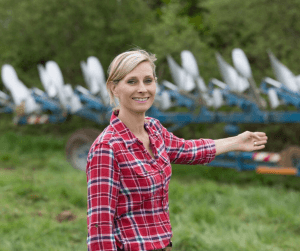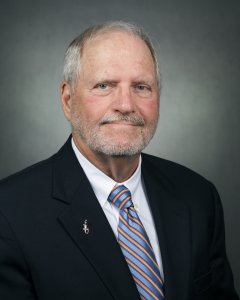
@JackPayneIFAS
Ten years ago, John Hoblick told an audience on campus recently, he helped find a new leader for the University of Florida’s Institute of Food and Agricultural Sciences. He offered his humble assessment that he had done a great job.
It was his sly, humorous way of paying me a public compliment. He really has done a great job in the decade since, and that’s why he was on the podium at the UF/IFAS Dinner of Distinction in the first place.
John and I didn’t create the strong relationship between UF/IFAS and the Farm Bureau. It precedes us by decades. As John reminded us all at this year’s dinner, though, we didn’t take the relationship for granted either.
In some states, John said that night, the land-grant university and the Farm Bureau don’t get along. It hurts both entities.
By contrast, in Florida, when event organizers sought someone to offer a tribute at my last Dinner of Distinction as senior vice president, the choice was obvious. The guy who helped pick me, and the guy who’s going to help pick my successor, was the guy to bid me farewell.
As stewards of the state’s leading organizations for agricultural scientists and agricultural producers, John and I have become close friends as well as compatible colleagues. We’ve talked about fishing, family, travel and dogs. That has helped us get through the times we have disagreed.
We keep the interests of Florida farming first. We see the results in a $165-billion-a-year industry despite disease, extreme weather events, market volatility and unfair trade practices. We also see great examples of the relationship between farmers and scientists across the state.
In Okaloosa County, Farm Bureau President Keith Free watched Jennifer Bearden grow up and become a county Extension ag agent, and now he has her drive the other tractor in an annual two-vehicle parade through downtown Crestview. In Polk County, UF/IFAS Extension Director Nicole Walker and Polk County Farm Bureau Executive Director Carol McKenzie give 6,000 fourth-graders a close-up look at agriculture in their community.
Suwannee County Farm Bureau mainstay Randall Dasher and UF/IFAS Extension veteran Bob Hochmuth helped revive what had been the Suwannee Valley Agricultural Extension Center and make it a research station. UF/IFAS forage researcher and Extension specialist Jose Dubeux has a standing invitation to send his students for regular visits to Jackson County Farm Bureau board member Mack Glass’s ranch to monitor perennial peanut trials.
I could go on and on. The strong relationships with the Farm Bureau and other commodity associations helped fuel a decade of remarkable progress at UF/IFAS.
We have improved our research and education centers, earned record research funding, achieved record student enrollment in the College of Agriculture and Life Sciences and grown our corps of agricultural Extension agents over what we employed a decade ago.
I don’t get to pick my successor, but I did get to suggest search committee members. Like the event organizers, I found my choice was obvious. President Fuchs accepted my recommendation to put John on the committee.
He’ll do a great job. So, with Farm Bureau support, will my successor.
Jack Payne is the University of Florida’s senior vice president for agriculture and natural resources and leader of the Institute of Food and Agricultural Sciences.


